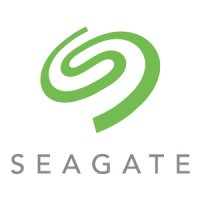Mass capacity storage and high-performance servers come together in the perfect software-defined storage platform, Exos AP
FREMONT, Calif. – September 17, 2020 – Seagate Technology plc (NASDAQ: STX), a world leader in data storage and management solutions, today announced it is shipping 18TB helium-based enterprise drives in volume as part of the Exos® X18 family. The new drive delivers high performance and mass capacity for hyperscale data centers to efficiently and cost-effectively manage ever-increasing amounts of data. Additionally, Seagate’s Enterprise Data Solutions launched the new Exos® Application Platform (AP) 2U12 as well as a new controller for the company’s AP 4U100 systems.
The need for hyperscale and cloud storage solutions continues to rise to unprecedented levels with the ever-increasing growth in data generation. According to a recent Seagate report, Rethink Data, enterprise data is expected to grow at an average rate of 42.2% over the next two years. The survey was conducted by IDC, which also forecast the global datasphere will reach a staggering 175ZB by 2025 in a previous IDC whitepaper sponsored by Seagate. The high-capacity Exos X18 supports this expanding need for data storage.
Using the Exos X18, Seagate’s Enterprise Data Solutions team combined high-capacity storage and compute into one platform. The recently launched AP combine servers and storage in an ultra-compact, dense system to meet the demands of businesses with varying performance and capacity requirements. The Exos AP 2U12 offers a new controller, flexible enclosure, enterprise-grade firmware, data protection, and automatic tiering.
“Seagate’s Exos X18 hard drives and upgraded Exos AP controllers enable enterprises to effectively tackle challenges associated with the exponential rise in data volumes by increasing system capacity and reducing deployment complexity,” said Ken Claffey, vice president and general manager of enterprise data solutions at Seagate Technology. “With the ever-increasing demand from enterprise data centers for greater storage capacity and efficiency, Seagate offers the industry's leading density and configurability with ease of deployment for data lakes and private storage clouds.”
Exos X18 is the fifth-generation high capacity helium 3.5-inch 7200 RPM nearline enterprise drive offering 18TB with both SATA and SAS interfaces. It enables high-capacity storage solutions that ensure customers can scale capacity in a cost-effective way. It supports hyperscale, datacenter, and enterprise NAS system storage challenges by enabling ultra-fast data transfers, lower power and weight compared with traditional nearline drives, increased random reads/write (IOPS) than previous generations with 512e and 4KN formatting. Exos X18 includes built-in data protection through Seagate Secure™ technology that provides for safe, affordable, fast, and easy drive retirement.
The Exos X18 18TB hard drive is now available for an MSRP of $561.75.
About Seagate
Seagate Technology crafts the datasphere, helping to maximize humanity’s potential by innovating world-class, precision-engineered data management solutions with a focus on sustainable partnerships. Learn more about Seagate by visiting www.seagate.com or following us on Twitter, Facebook, LinkedIn, YouTube, and subscribe to our blog.
©2020 Seagate Technology LLC. All rights reserved. Seagate, Seagate Technology and the Spiral logo are registered trademarks of Seagate Technology LLC in the United States and/or other countries. Exos is either a trademark or registered trademark of Seagate Technology LLC or one of its affiliated companies in the United States and/or other countries. All other trademarks or registered trademarks are the property of their respective owners. When referring to drive capacity, one gigabyte, or GB, equals one billion bytes and one terabyte, or TB, equals one trillion bytes. Your computer’s operating system may use a different standard of measurement and report a lower capacity. In addition, some of the listed capacity is used for formatting and other functions, and thus will not be available for data storage. Actual data rates may vary depending on operating environment and other factors.








